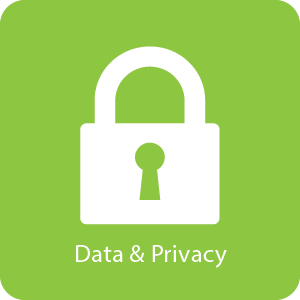DPI's Commitment to support Digital Citizenship in ALL school!

The Wisconsin Department of Public Instruction is committed to supporting schools in programming around data privacy, which includes data privacy, cyber safety, and digital citizenship. According to the Wisconsin Digital Learning Plan Data and Privacy Gear, the priorities and goals to support schools and students can be aligned to the competencies for students to be emotionally safe and secure online as well be prepared for the digital world that is their future.
The WI Information and Technology Literacy (ITL) content strand of Digital Citizenship (DC) is an important strand for schools to embrace across a wide range of curricular integration and programming supports. Districts are also highly encouraged to provide professional development for educators for securing student data, safe computing practices, district policies and handbook agreements, classroom behavior management for digital enabled learning environments, cyber bullying policies and prevention, responsible online behaviors for learning activities, appropriate social media behaviors if tools are leveraged for learning and appropriate communication strategies for parents via digital communications. Schools have the local flexibility to determine staffing responsibilities as well as a scope and sequence of information and technology literacy activities and programming.
WI ITL Digital Citizenship Content Strand:
- K-12 ITL Digital Citizenship Standard(Google Doc) or (PDF)
- ITL Digital Citizenship Glossary (Google Doc) or (PDF)
Positive Behavior Intervention Services (PBIS) - Digital Citizenship Programming
- Wisconsin Positive Behavioral Intervention Support page
- AWSA Bulletin - Why Digital Citizenship is Digital PBIS- and Why It Really Matters Brian Casey, Ed.D.Director of Technology Stevens Point Area Public School District
- WI DPI Internet Safety- Digital Citizenship
1:1 Mobile Computing Program and Responsible Technology Use
The Wisconsin Digital Learning Plan supports high-quality instruction and learning that enables all students to participate in an education that is equitable, personalized, engaged and applied. The Wisconsin Information and Technology Literacy (ITL) standards are an important resource for districts to guide instructional planning, digital citizenship standards, and student agency in digital rich learning environments Schools districts across Wisconsin are investing in 1:1 mobile computing programs to enhance student learning. The Wisconsin Department of Public Instruction defines mobile 1:1 computing as any state, school or building program that provides a computing device to each student. DPI has created the Internet Safety resource page to support students, educators, parents, and districts in best practices which are vital to ensure student safety and protection of student data with 1:1 mobile device programs.appropriate planning around the respectable use
Best practices to promote responsible use, 1:1 computing programs, and positive online interactions:
- Student Responsible Use Agreement/Policy (along with or in place of Acceptable Use Policy)
- Parent supervision and responsible use agreements
- Policies on the responsible use of technology for school learning activities
- Policies about the responsible use of school district filters, access expectations, age-appropriate access of content, appropriate interactions online
- Appropriate use of personal student devices and cell phones during learning activities and school-sponsored events
- Parent, student, community safety programming inclusive of online behaviors
- Inclusion of online safety tips and resources in parent/guardian communications
- PBIS programming and visual reminders to students in learning spaces
- Student programming about online reputations and digital footprints as it applies to post-high school applications and career goals
- Review of district cyberbullying policies with parents/guardians and students
- Safe reporting options of incidents, violations, and online misbehaviors that affect the learning environment
Safe and Emotional Learning (SEL) Programming Support
Social and emotional learning is the process through which children and adults acquire and effectively apply the knowledge, attitudes, and skills necessary to understand and manage emotions, set and achieve positive goals, feel and show empathy for others, establish and maintain positive relationships, and make responsible decisions. The Wisconsin Department of Public Instruction, in partnership with the Safe Schools Healthy Students grant and the Collaborative for Academic, Social, and Emotional Learning (CASEL) is committed to providing resources to schools and families to support comprehensive social and emotional learning opportunities for students.
- DPI Safe Schools- Comprehensive Approach to Bullying (see related links on the right-hand side for cyberbullying resources)
- DPI Social and Emotional Learning
Curricular and Programming Resources
- Common Sense Media Digital Citizenship Resource Center (interactive games, posters, parents materials, topic toolkits, bilingual resources)
- Common Sense Media Scope and Sequence K-12 Digital Citizenship Curriculum
- DPI Internet Safety - Keeping Kids Safe Online website -check out resources for stakeholders and topic aligned resources
- Nearpod: Digital Citizenship Interactive Modules/Dashboard and Certificate
- BrainPop Digital Citizenship free resources
- BrainPop Digital Etiquette free resources
- WISELearn Digital Citizenship resources